Imagine for a minute what British politics would be like without a Covid vaccine. The cabinet would be deeply, and possibly irrevocably, split between those who favoured another year of lockdown on public health grounds and those who thought that the country had no alternative in the circumstances but to ease restrictions and learn to live with the virus. The 100,000 death toll would have been reached with no hope in sight and a public sense that, almost inevitably, things were going to get worse.
The vaccine has changed so much. It has given people hope. There is a belief in the general public that this will be the last lockdown, which is bolstering morale and compliance. As the country’s vaccine rollout continues on schedule, and far ahead of the European Union’s, the government is beginning to recover some of its reputation for competence. Cabinet ministers are also, for now, more united on Covid strategy than they were in the autumn.
One of the major challenges for the government was to show the benefits of Brexit. The vaccine rollout is doing that. As an EU member, the UK could in theory have opted out of the EU vaccine scheme, procured its own vaccines and had them approved by its own regulator. In practice, it would not have done so: just look at the fact that no EU member state chose to go its own way on vaccines until a fortnight ago when Hungary decided to approve Russia’s Sputnik jab.
The British vaccine strategy shows the benefits of a nation state being able to move at its own pace, and not having to wait for consensus to be reached among 27 countries. The EU Commission’s behaviour last week also cast it in an unflattering light. It is hard for the EU to claim it is the defender of the rules-based international order when it threatens export bans and, albeit briefly, tries to invoke Article 16 of the Northern Ireland Protocol less than a month after the Brexit deal. Indeed, the behaviour of various EU leaders in recent days has been irresponsible and, possibly, self-defeating. In an interview with international journalists, Emmanuel Macron called the Oxford- AstraZeneca vaccine ‘quasi-ineffective’ for over-65s, despite admitting he had no figures or official information to back up this point. Ursula von der Leyen, the Commission President, accused the UK of failing in its ‘gigantic responsibility’ to ensure the safety of vaccines before approving them because it used an emergency authorisation process. But this seems an odd — and irresponsible — criticism given that the European Medicines Agency then approved both the Pfizer and AstraZeneca vaccines. Some European countries have worryingly high levels of vaccine scepticism; these statements risk undermining the EU vaccination programme before it even really gets going.
Once Covid is over, the other great challenge of Boris Johnson’s premiership will be keeping the Union together. Even here the vaccine success is helping. It is clear that an independent Scotland wouldn’t have benefitted from the UK rollout, either because it would have been part of the EU programme (Nicola Sturgeon is clear that Scotland would try to accede to the EU) or because it would have been a totally independent country with its own vaccine strategy.
To date, support for Scottish independence has risen during the Covid crisis. This is mainly due to the perception that the Scottish government has handled the matter more competently than Westminster and that Sturgeon has a better grip on things than Johnson. But when it comes to vaccination, Scotland is behind the other parts of the UK. At the start of this week, for every 100 people in England who had had their first dose, 68 had been jabbed in Scotland. Sturgeon, who has projected an air of calm control during this crisis, becomes unusually ratty when questioned about the pace of the rollout. There are signs that voters in Scotland are beginning to notice that progress there is slower than in the rest of the Union.
A year ago, the UK had no ability to produce vaccines on a large scale. Now there are multiple manufacturing sites here. This is vital since the expectation in government is that for the next few years people will need regular booster jabs to protect against new variants of Covid, as with the flu jab.
The progress of the vaccine programme, and the falling death toll, will reopen the debate in the Tory party about how quickly restrictions should be eased. This will be tricky for Johnson. He is inclined to go slowly to ensure that this is the last lockdown and to avoid once more over-promising and under-delivering. But Tory MPs see the fast pace of vaccination as a sign that it will soon be safe to open up again. One long-time ally of the Prime Minister admits that as deaths start to fall there will be pressure for easing up, but the lack of slack in hospitals — which currently have bed occupancy of around 40 per cent higher than previous surge capacity — will make that very difficult.
One thing driving the desire for a rapid reopening of society is a sense that many businesses can’t last much longer. A cabinet minister warns: ‘Even with all the schemes, businesses are running out of money… If we’re in lockdown much past Easter, people are going to go nuts.’
Another factor is concern about the societal damage done by school closures. Tories are already angry that Scottish primaries will start to return before English ones. There is a strong mood on the back benches, not calmed by the Education Secretary’s parliamentary allies, that all year groups must return to school on 8 March.
The news that the Oxford vaccine may reduce transmission by two thirds is extremely significant. If this finding holds up, then it creates the possibility of a more comprehensive and rapid easing of the lockdown. Worries about vaccine-resilient variants mean that it is probable foreign travel will still be tightly controlled. But domestically, there could be a return to normality.
The success of Britain’s vaccine programme has improved the mood on the Tory benches and stopped the nascent grumbling against Johnson. But Tory MPs regard vaccination as a means to an end — the quickest way to reopen society and the economy. They will be impatient to see that happen.
Got something to add? Join the discussion and comment below.
Get 10 issues for just $10
Subscribe to The Spectator Australia today for the next 10 magazine issues, plus full online access, for just $10.
You might disagree with half of it, but you’ll enjoy reading all of it. Try your first month for free, then just $2 a week for the remainder of your first year.


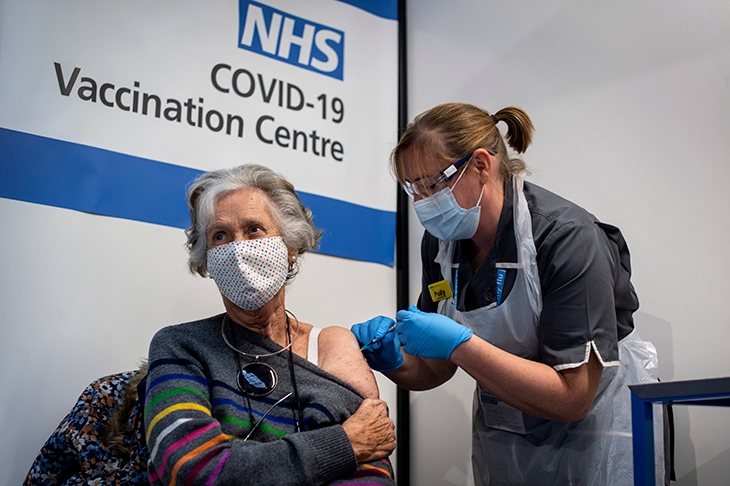
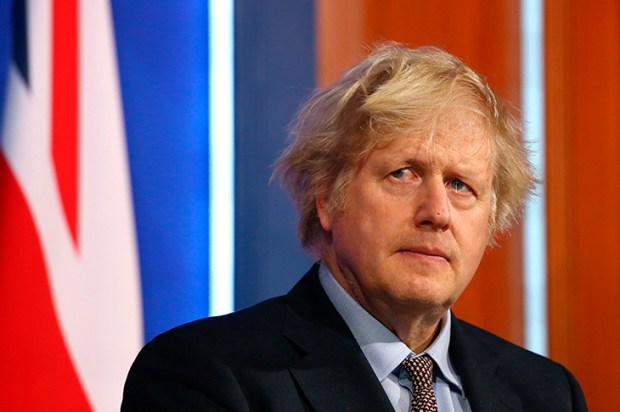
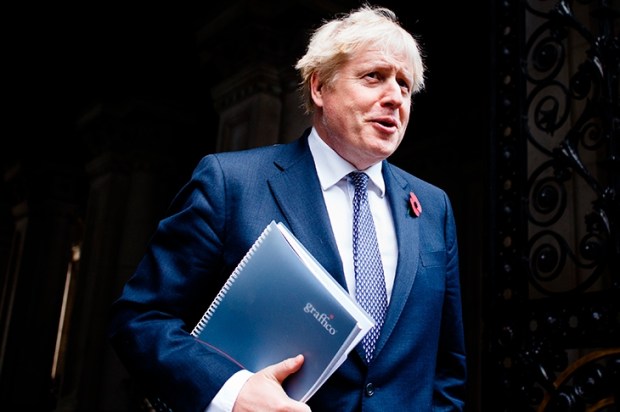

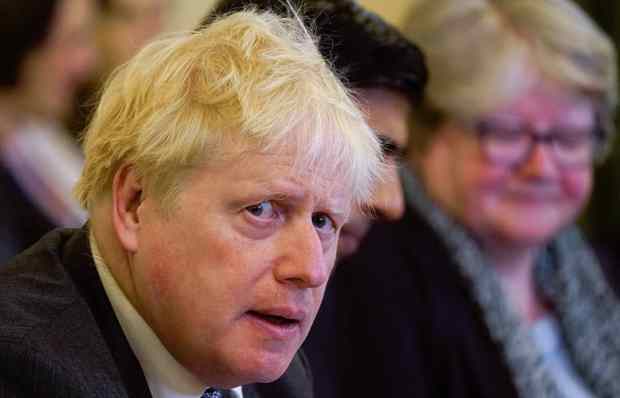
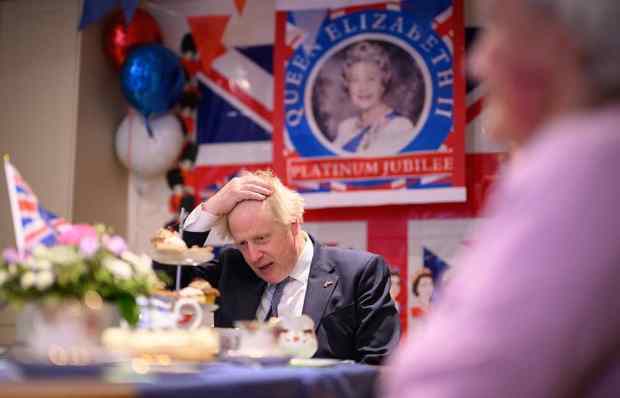
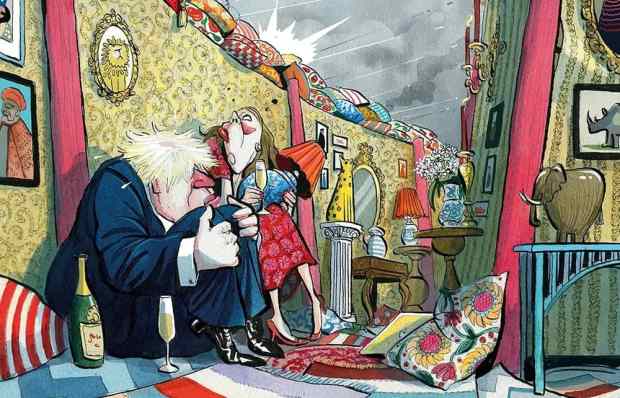






Comments
Don't miss out
Join the conversation with other Spectator Australia readers. Subscribe to leave a comment.
SUBSCRIBEAlready a subscriber? Log in